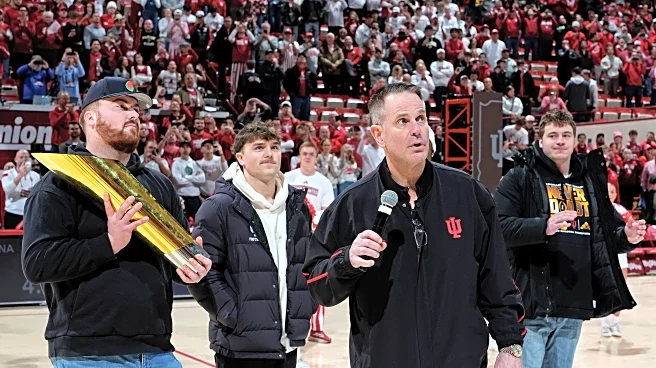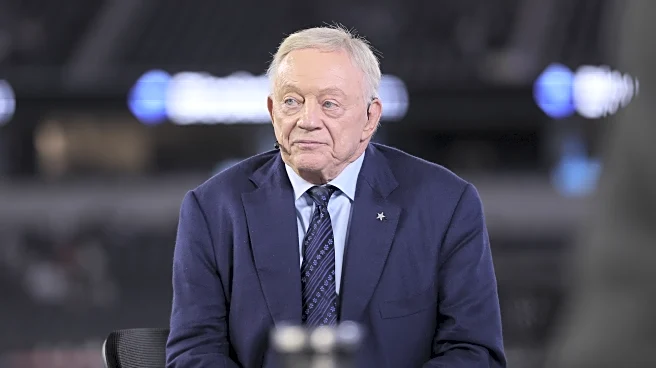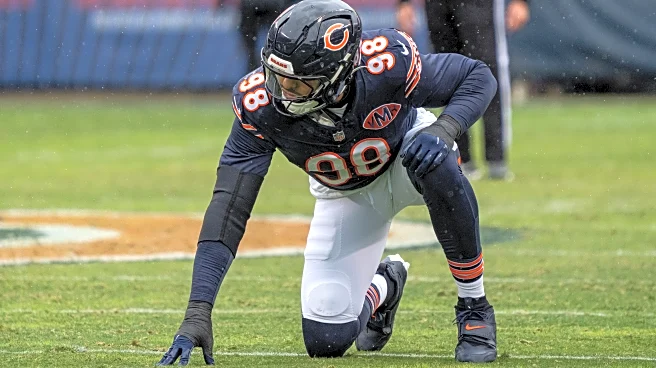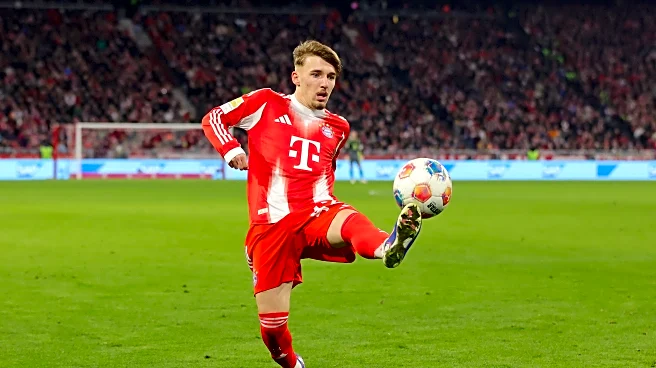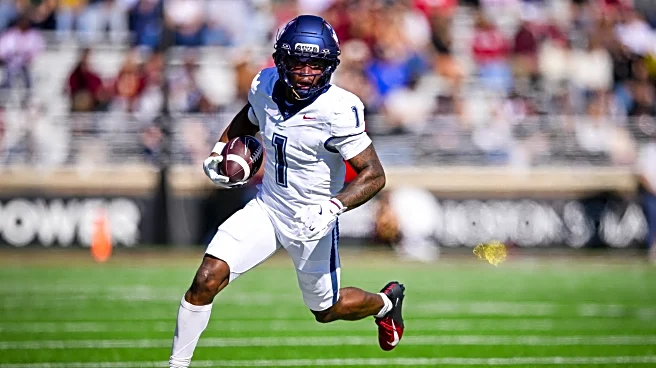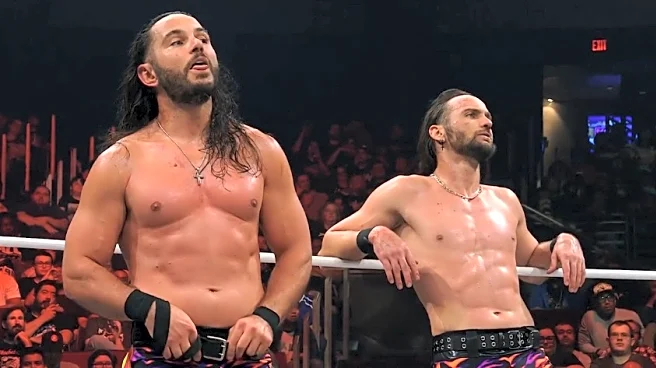What's Happening?
Manchester United manager Ruben Amorim has announced that Altay Bayindir will start as goalkeeper in the upcoming Manchester derby against Manchester City. Despite the recent acquisition of Belgian goalkeeper Senne Lammens, Amorim has opted for Bayindir, who has been the starting goalkeeper in United's first three Premier League matches this season. Bayindir has conceded four goals in these matches but retains Amorim's confidence for the crucial derby. The decision is significant as United faces injuries to key players Mason Mount, Matheus Cunha, and Diogo Dalot, making the choice of goalkeeper even more critical for the team's stability.
Why It's Important?
The decision to start Bayindir over Lammens highlights the importance of experience in high-pressure matches like the Manchester derby. With key players sidelined due to injuries, Amorim's choice reflects a strategic move to ensure defensive stability against a formidable opponent. This decision could impact United's performance in the derby, influencing their standing in the Premier League. Fans and analysts will be watching closely to see if Bayindir can rise to the occasion and deliver a strong performance, which could solidify his position as United's first-choice goalkeeper.
What's Next?
As the Manchester derby approaches, the focus will be on Bayindir's performance and whether he can handle the pressure of such a high-stakes match. The outcome of the derby could affect United's momentum in the league and Amorim's future decisions regarding the goalkeeper position. If Bayindir performs well, it may reinforce Amorim's strategy of prioritizing experience over youth in critical matches. Conversely, if the decision backfires, it could lead to increased scrutiny and potential changes in the lineup for future games.
Beyond the Headlines
The choice between Bayindir and Lammens also reflects broader themes in sports management, such as the balance between nurturing young talent and relying on seasoned players. This decision may influence how other teams approach similar situations, weighing the benefits of immediate experience against long-term development. Additionally, it underscores the pressure managers face in making tactical decisions that can have significant implications for team dynamics and success.




